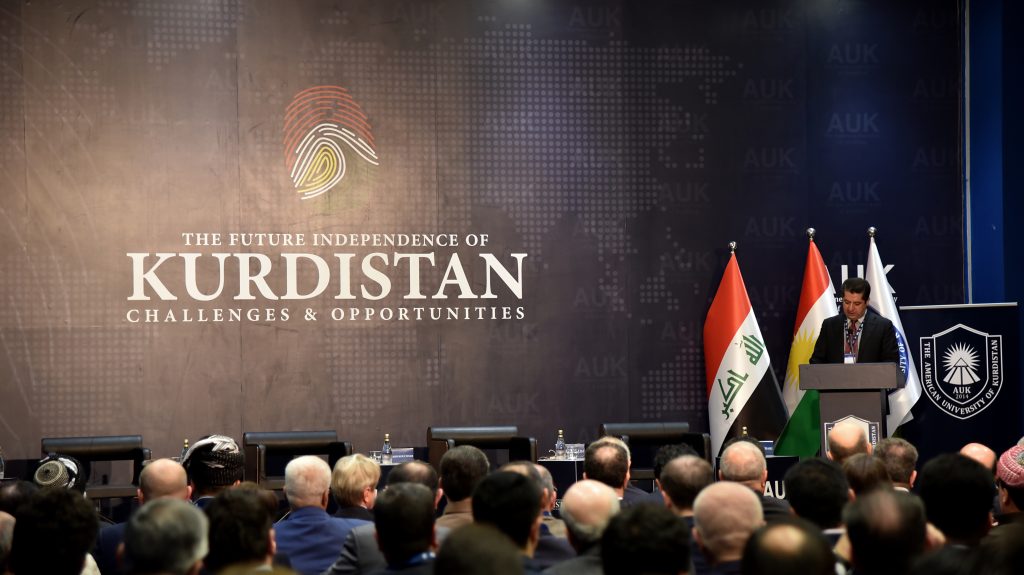An Independent Kurdish State? Political Experts and KRG Leaders Gather at AUK
Duhok, Iraqi Kurdistan – December 16, 2016 – Academics, journalists, and politicians from across the globe met at The American University of Kurdistan for a two-day conference titled “Independence of Kurdistan: Challenges and Opportunities.” The conference consisted of five panels addressing issues of international law, intra-Kurdish relations, and the potential consequences of Kurdish independence for the Middle East and the world.
Some of the high-profile politicians who spoke at the conference include KRG Prime Minister Nechirvan Barzani, Chancellor of the Kurdistan Regional Security Council Masrour Barzani, former US Ambassador to the UN and Iraq Zalmay Khalilzad, and former KRG Prime Minister Barham Salih.
Dr. Bernard Kouchner, former French Foreign Minister, contended that international law should not be the KRG’s primary concern in declaring independence and that the Kurdish people had won the West’s empathy and admiration: “You are the allies of democracy. You are the people fighting against ISIS. You are the people fighting for gender balance. You are the people with all the respect for religion.”
Peter Galbraith, former US Ambassador to Croatia and outspoken supporter of Kurdish independence, submitted that the Trump administration’s lack of a foreign policy “might not be a bad thing” for Kurds’ aspirations of independence. He admonished the KRG to take advantage of the window of opportunity provided by favorable international opinion and a weakened Baghdad.
Concerning prospective regional support for Kurdish independence, Prof. Ofra Bengio of Tel Aviv University said that the majority of her compatriots had strong affinity for the Kurdish people and that Israel would be the first country to recognize an independent Kurdish state. Of all potential reactions to Kurdish independence, she said “the most difficult question is Iran.”
Leaders from Kurdish political groups in Turkey, Syria, and Iran also voiced their support for an independent Kurdistan.
Although the KRG is largely autonomous, having its own armed forces and recognized regional government, it is legally part of the federal Republic of Iraq. Some issues facing Kurdish independence include international recognition and the new government’s prospective relationships with Baghdad, Ankara, and Tehran.


